Fleurs du Mal Magazine


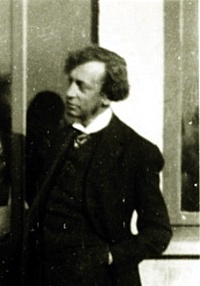
O Blik vol Dood en Sterren
o Blik vol dood en sterren,
o hart vol licht en leed.
De dag is spijtig verre;
de nacht is hel en wreed.
Mijn mond vol wondre smaken
die géne vrucht verzaadt.
Niemand, o hunkrend waken,
die langs mijn venster gaat…
Wij zullen nimmer wezen
dan Godes angst’ge wezen.
– God, laat ons waan en schijn
dat we Uwe wezen zijn.
Karel van de Woestijne
(1878 – 1929)
O Blik vol Dood en Sterren
• fleursdumal.nl magazine
More in: Archive W-X, Archive W-X, Woestijne, Karel van de

Melody versus Malady
[The Lancet recently discussed the value of music in the
treatment of disease.]
Away with all doctors and physic-concocters !
Down with surgeons and down with physicians !
In future hautboys will replace • doctor’s boys,
And when ailing we’ll send for musicians.
The gentle guitar will soon banish catarrh,
The organ organic diseases ;
The ophicleide serves to establish the nerves,
The mandolin measles appeases.
If you catch influenza just try a cadenza
On the harmless and homely harmonium,
And if you complain of a sprain or a strain
Then summon the soothing euphonium.
Try the cornet for corns and for ague French horns,
And if you should feel very sick or low
Try an air on the lute, a few notes from the flute.
Or the piercing yet popular piccolo.
Montague Horatio Mostyn Turtle Pigott
(1865–1927)
Melody versus Malady (Poem)
• fleursdumal.nl magazine
More in: Archive O-P, Archive O-P, Mostyn Turtle Pigott

On loge à la nuit
Aventurier conduit par le louche destin,
Pour y passer la nuit, jusqu’à demain matin,
Entre à l’auberge Louvre avec ta rosse Empire.
Molière te regarde et fait signe à Shakspeare ;
L’un te prend pour Scapin, l’autre pour Richard trois.
Entre en jurant, et fais le signe de la croix.
L’antique hôtellerie est toute illuminée.
L’enseigne, par le temps salie et charbonnée,
Sur le vieux fleuve Seine, à deux pas du Pont-Neuf,
Crie et grince au balcon rouillé de Charles neuf ;
On y déchiffre encor ces quelques lettres : – Sacre ; –
Texte obscur et tronqué, reste du mot Massacre.
Un fourmillement sombre emplit ce noir logis.
Parmi les chants d’ivresse et les refrains mugis,
On rit, on boit, on mange, et le vin sort des outres.
Toute une boucherie est accrochée aux poutres.
Ces êtres triomphants ont fait quelque bon coup.
L’un crie : assommons tout ! et l’autre : empochons tout !
L’autre agite une torche aux clartés aveuglantes.
Par places sur les murs on voit des mains sanglantes.
Les mets fument ; la braise aux fourneaux empourprés
Flamboie ; on voit aller et venir affairés,
Des taches à leurs mains, des taches à leurs chausses,
Les Rianceys marmitons, les Nisards gâte-sauces ;
Et, – derrière la table où sont assis Fortoul,
Persil, Piétri, Carlier, Chapuys le capitoul,
Ducos et Magne au meurtre ajoutant leur paraphe,
Forey dont à Bondy l’on change l’orthographe,
Rouher et Radetzky, Haynau près de Drouyn, –
Le porc Sénat fouillant l’ordure du grouin.
Ces gueux ont commis plus de crimes qu’un évêque
N’en bénirait. Explore, analyse, dissèque,
Dans leur âme où de Dieu le germe est étouffé,
Tu ne trouveras rien. – Sus donc, entre coiffé
Comme Napoléon, botté comme Macaire.
Le général Bertrand te précède ; tonnerre
De bravos. Cris de joie aux hurlements mêlés.
Les spectres qui gisaient dans l’ombre échevelés
Te regardent entrer et rouvrent leurs yeux mornes
Autour de toi s’émeut l’essaim des maritornes,
A beaucoup de jargon mêlant un peu d’argot ;
La marquise Toinon, la duchesse Margot,
Houris au coeur de verre, aux regards d’escarboucles.
Maître, es-tu la régence ? on poudrera ses boucles
Es-tu le directoire ? on mettra des madras.
Fais, ô bel étranger, tout ce que tu voudras.
Ton nom est million, entre ! – Autour de ces belles
Colombes de l’orgie, ayant toutes des ailes,
Folâtrent Suin, Mongis, Turgot et d’Aguesseau,
Et Saint-Arnaud qui vole autrement que l’oiseau.
Aux trois quarts gris déjà, Reibell le trabucaire
Prend Fould pour un curé dont Sibour est vicaire.
Regarde, tout est prêt pour te fêter, bandit.
L’immense cheminée au centre resplendit.
Ton aigle, une chouette, en blasonne le plâtre.
Le boeuf Peuple rôtit tout entier devant l’âtre
La lèchefrite chante en recevant le sang ;
A côté sont assis, souriant et causant,
Magnan qui l’a tué, Troplong qui le fait cuire.
On entend cette chair pétiller et bruire,
Et sur son tablier de cuir, joyeux et las,
Le boucher Carrelet fourbit son coutelas.
La marmite budget pend à la crémaillère.
Viens, toi qu’aiment les juifs et que l’église éclaire,
Espoir des fils d’Ignace et des fils d’Abraham,
Qui t’en vas vers Toulon et qui t’en viens de Ham,
Viens, la journée est faite et c’est l’heure de paître.
Prends devant ce bon feu ce bon fauteuil, ô maître.
Tout ici te vénère et te proclame roi ;
Viens ; rayonne, assieds-toi, chauffe-toi, sèche-toi,
Sois bon prince, ô brigand ! ô fils de la créole,
Dépouille ta grandeur, quitte ton auréole ;
Ce qu’on appelle ainsi dans ce nid de félons,
C’est la boue et le sang collés à tes talons,
C’est la fange rouillant ton éperon sordide.
Les héros, les penseurs portent, groupe splendide,
Leur immortalité sur leur radieux front ;
Toi, tu traînes ta gloire à tes pieds. Entre donc,
Ote ta renommée avec un tire-bottes.
Vois, les grands hommes nains et les gloires nabotes
T’entourent en chantant, ô Tom-Pouce Attila !
Ce boeuf rôtit pour toi ; Maupas, ton nègre, est là ;
Et, jappant dans sa niche au coin du feu, Baroche
Vient te lécher les pieds tout en tournant la broche.
Pendant que dans l’auberge ils trinquent à grand bruit,
Dehors, par un chemin qui se perd dans la nuit,
Hâtant son lourd cheval dont le pas se rapproche,
Muet, pensif, avec des ordres dans sa poche,
Sous ce ciel noir qui doit redevenir ciel bleu,
Arrive l’avenir, le gendarme de Dieu.
1er février.
Victor Hugo
(1802-1885)
On loge à la nuit
“Les Châtiments”
(Poème)
• fleursdumal.nl magazine
More in: Archive G-H, Archive G-H, Hugo, Victor, Victor Hugo
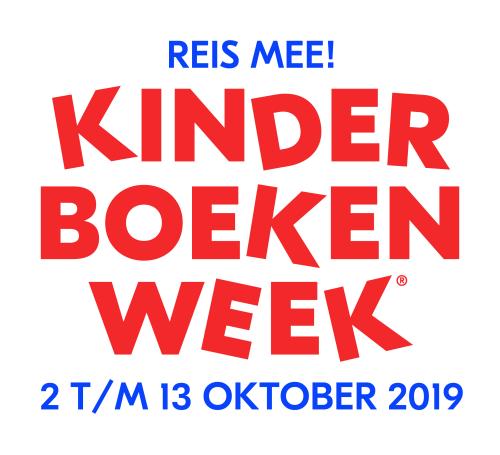
De 65ste Kinderboekenweek vindt plaats van woensdag 2 t/m zondag 13 oktober 2019. Anna Woltz schrijft het Kinderboekenweekgeschenk. André Kuipers schrijft het Prentenboek van de Kinderboekenweek met illustraties van Natascha Stenvert.
# Meer informatie op website: https://www.kinderboekenweek.nl/
• fleursdumal.nl magazine
More in: - Audiobooks, - Book Lovers, - Book News, - Book Stories, - Bookstores, Art & Literature News, AUDIO, CINEMA, RADIO & TV, Kinderboekenweek
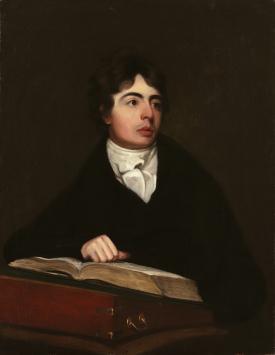
To Mary Wollstonecraft
The lilly cheek, the “purple light of love,”
The liquid lustre of the melting eye,–
Mary! of these the Poet sung, for these
Did Woman triumph! with no angry frown
View this degrading conquest. At that age
No MAID OF ARC had snatch’d from coward man
The heaven-blest sword of Liberty; thy sex
Could boast no female ROLAND’S martyrdom;
No CORDE’S angel and avenging arm
Had sanctified again the Murderer’s name
As erst when Caesar perish’d: yet some strains
May even adorn this theme, befitting me
To offer, nor unworthy thy regard.
Robert Southey
(1774 – 1843)
To Mary Wollstonecraft
• fleursdumal.nl magazine
More in: Archive S-T, Mary Shelley, Shelley, Mary
literature & poetry # spoken word & live literature # Fatima Bhutto: Bollywood, K-Pop and Beyond # Part of London Literature Festival # 17 – 27 Oct 2019
 India’s Bollywood films, Turkish dizi soap opera and South Korean pop music: mass culture from the East is taking on Hollywood and finding a truly global audience.
India’s Bollywood films, Turkish dizi soap opera and South Korean pop music: mass culture from the East is taking on Hollywood and finding a truly global audience.
Hear from acclaimed author Fatima Bhutto about the vast cultural movement emerging from beyond the Western world.
Drawing on her book New Kings of the World: Dispatches from Bollywood, Dizi, and K-Pop, Bhutto speaks on the arbiters behind these cultural movements.
She examines how they interweave traditional values into urbanised settings and how they appeal to many millions.
From behind the scenes of Magnificent Century, Turkey’s biggest TV show, watched by upwards of 200 million people across 43 countries, to South Korea to see how ‘Gangnam Style’ became the first YouTube video with one billion views, Bhutto charts the extraordinary rise and reach of these cultural phenomena.
Bhutto was born in Kabul, Afghanistan, in 1982. She grew up in Syria and Pakistan. She is the author of five previous books, including The Shadow of the Crescent Moon which was longlisted in 2014 for the Baileys Women’s Prize for Fiction and highly acclaimed novel The Runaways.
Fatima Bhutto
21 Oct 2019 7:15 pm
Approximate run time: 90 mins
Run times may vary, find out more
where?
Purcell Room in Southbank Centre London
Bringing new resonance to timeless narratives, Southbank Centre’s London Literature Festival returns for its 13th year with an exploration of fairy tales for our times with today’s leading writers, thinkers and cultural observers. 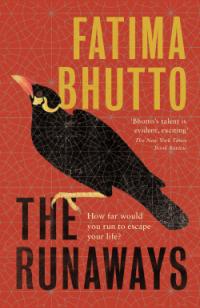
Over 11 days of talks, readings, poetry and performance, the festival features Elizabeth Day, Armistead Maupin, Brett Anderson, Heather Morris, Lemn Sissay, Anthony Daniels (C-3PO), Nikki Giovanni, Fatima Bhutto and Jung Chang.
The festival once again opens with Poetry International, Southbank Centre’s longest running festival, founded by Ted Hughes, former poet laureate, in 1967. This year follows the theme of disruption.
The Purcell Room in Queen Elizabeth Hall reopened in April 2018 following almost three years of refurbishment. With new improved facilities and acoustics, this intimate wood-panelled auditorium provides a platform for music and performance events, a variety of talks and debates, plus readings of classical and modern literature.
The world-renowned venue has played host to some of the biggest names of the 20th century and beyond, including David Bowie, Daniel Barenboim, Marianne Faithfull and Radiohead’s Jonny Greenwood.
Purcell Room is located in Queen Elizabeth Hall.
London Literature Festival
17 – 27 Oct 2019
poetry – spoken word & live literature
# website Queen Elizabeth Hall / Purcell Room
• fleursdumal.nl magazine
More in: - Book Stories, Archive A-B, Art & Literature News, AUDIO, CINEMA, RADIO & TV, Fatima Bhutto, Literary Events, Poetry International, REPRESSION OF WRITERS, JOURNALISTS & ARTISTS

Design Museum Den Bosch presenteert de eerste grote overzichtstentoonstelling van design van het Derde Rijk. De tentoonstelling Design van het Derde Rijk toont de enorme bijdrage van vormgeving aan de ontwikkeling van de kwaadaardige nazi-ideologie.
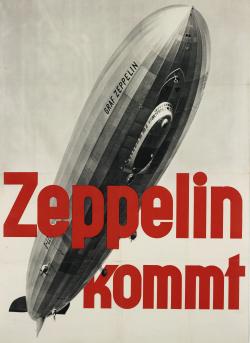 Met de Volkswagen Kever, de Olympische Spelen in 1936, de swastika en de films van Leni Riefenstahl en andere belangrijke stukken uit Nederland en Duitsland. Design van het Derde Rijk: waarom in Design Museum Den Bosch?
Met de Volkswagen Kever, de Olympische Spelen in 1936, de swastika en de films van Leni Riefenstahl en andere belangrijke stukken uit Nederland en Duitsland. Design van het Derde Rijk: waarom in Design Museum Den Bosch?
Musea zijn gewend om de goede kant van cultuur te zien. Juist design wordt vaak gepresenteerd als een bijdrage aan een betere wereld.
De geschiedenis van vormgeving bestaat daarom uit steeds terugkerende onderwerpen die het moreel juiste vertegenwoordigen.
Maar design reflecteert de wereld, met al zijn goede én slechte kanten. In de tentoonstelling Design van het Derde Rijk is de vormgeving een instrument in de handen van het ultieme kwaad.
 De nazi’s waren meesters in het inzetten van vormgeving om hun doel te bereiken; massa’s mensen wisten ze ermee aan hun kant te krijgen en te onderdrukken. Design Museum Den Bosch is een designmuseum nieuwe stijl met een kritische opstelling. Als je volmondig dit nooit weer wilt kunnen zeggen, moet je de moeite nemen te analyseren hoe de processen van beïnvloeding destijds werkten. Dat is wat deze tentoonstelling doet.
De nazi’s waren meesters in het inzetten van vormgeving om hun doel te bereiken; massa’s mensen wisten ze ermee aan hun kant te krijgen en te onderdrukken. Design Museum Den Bosch is een designmuseum nieuwe stijl met een kritische opstelling. Als je volmondig dit nooit weer wilt kunnen zeggen, moet je de moeite nemen te analyseren hoe de processen van beïnvloeding destijds werkten. Dat is wat deze tentoonstelling doet.
Het design van het Derde Rijk was in grondslag tegenstrijdig. De tentoonstelling Design van het Derde Rijk is daarom ingedeeld aan de hand van verschillende tegenstellingen.
Zuiverheid stond centraal, wat betekende dat verschillende bevolkingsgroepen als Joden, homo’s en zigeuners dienden te worden vernietigd. Het nazisme bedacht en steunde op een eigen geschiedenis, maar was tegelijkertijd fanatiek gericht op de toekomst. Het was vervuld van romantiek, maar ook geobsedeerd door moderne technologie.
Naar buiten toe liet het nazisme een verleidelijk beeld zien van voorspoed en zorgeloos vertier, terwijl in 1933 al de eerste concentratiekampen werden opgezet. Samen laten deze paradoxen zien hoe het nazisme binnen twaalf jaar eerst tot een enorme ontwikkeling en vervolgens tot een daverende ineenstorting kwam. En op welke manier design in dat proces een doorslaggevende rol speelde.
De tegenstellingen die het nazisme kenmerken worden getoond aan de hand van een ruime selectie objecten uit Nederlandse en Duitse musea en verzamelingen. Zo zijn er architectuurelementen en meubels te zien uit het Haus der Deutschen Kunst en de Rijkskanselarij.
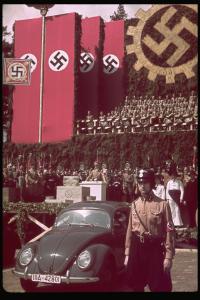 De ontwerpen tonen hoe de nazi’s teruggrepen op de classicistische vormgeving als machtsvertoon en symbool voor een nieuwe Duitse cultuur. De vele tijdschriften die opgenomen zijn in de tentoonstelling geven een beeld van het ver doorgevoerde doelgroepenbeleid van de nazi’s. Van moeders tot soldaten, van jonge meisjes tot internationale bezoekers, iedereen werd op een eigen manier aangesproken. Instructieboeken laten zien hoe precies ieder onderdeel van de beeldvorming rond de nazi’s werd ontworpen. Bij de massabijeenkomsten werd niets aan het toeval over gelaten.
De ontwerpen tonen hoe de nazi’s teruggrepen op de classicistische vormgeving als machtsvertoon en symbool voor een nieuwe Duitse cultuur. De vele tijdschriften die opgenomen zijn in de tentoonstelling geven een beeld van het ver doorgevoerde doelgroepenbeleid van de nazi’s. Van moeders tot soldaten, van jonge meisjes tot internationale bezoekers, iedereen werd op een eigen manier aangesproken. Instructieboeken laten zien hoe precies ieder onderdeel van de beeldvorming rond de nazi’s werd ontworpen. Bij de massabijeenkomsten werd niets aan het toeval over gelaten.
De bruiklenen komen onder andere van het Deutsches Historisches Museum in Berlijn, het Münchner Stadtmuseum, het Haus der Kunst en het Institut für Zeitgeschichte in München, het Eyewitness Museum in Beek en het Nationaal Militair Museum in Soesterberg.
Bij de tentoonstelling is er een uitgebreid publieksprogramma, met activiteiten voor alle doelgroepen.
De tentoonstelling participeert in de herdenking 75 jaar vrijheid.
Design Museum Den Bosch presenteert
Design van het Derde Rijk
7 september 2019 t/m 19 januari 2020
Design Museum Den Bosch – De Mortel 4 – 5211 HV – ‘s-Hertogenbosch
# meer op website design museum: https://designmuseum.nl/
Design Museum Den Bosch:
Design van het Derde Rijk
• fleursdumal.nl magazine
More in: *War Poetry Archive, Art & Literature News, AUDIO, CINEMA, RADIO & TV, Design, Exhibition Archive, Holocaust, PRESS & PUBLISHING, REPRESSION OF WRITERS, JOURNALISTS & ARTISTS
Daniil Charms die in werkelijkheid Daniil Ivanovic Juvacov heette, werd in 1905 in St. Petersburg geboren, waar hij in 1942 stierf.
In 1926 richtte hij met Aleksandr Vvdenski en Nikolaj Zabolotski de avantgardegroep Oberiu (Objeedinenije realnogo iskoesstva – ‘Vereniging van reële kunst’) op. Hun doel was een artistieke revolutie door te voeren, parallel aan de politieke revolutie.
 Alhoewel ze het woord niet gebruikten pleitten ze voor absurde kunst. De doodsteek kwam toen ze in 1930 beschuldigd werden van protest tegen de dictatuur van het proletariaat. Charms werd in 1931 veroordeeld tot verbanning naar Koersk, waarvandaan hij in 1933 terugkeerde.
Alhoewel ze het woord niet gebruikten pleitten ze voor absurde kunst. De doodsteek kwam toen ze in 1930 beschuldigd werden van protest tegen de dictatuur van het proletariaat. Charms werd in 1931 veroordeeld tot verbanning naar Koersk, waarvandaan hij in 1933 terugkeerde.
Hij legde zich toen, omdat zijn werk voor volwassenen niet-publicabel was geworden, toe op kinderliteratuur.
Uiteindelijk werd hij in 1941, tijdens het beleg van het Leningrad (tot 1924 Petersburg genoemd), weer gearresteerd en krankzinnig verklaard. Charms stierf begin 1942, vermoedelijk uitgehongerd, in de psychiatrische afdeling van de gevangenis Kresty in Leningrad. Hij heeft geen graf.
Na zijn dood werden zijn manuscripten teruggevonden. In de jaren zestig begonnen publicaties van dit onuitgegeven werk te verschijnen, aanvankelijk vooral in het Westen. Op grond hiervan kreeg Charms algauw de reputatie van Ruslands belangrijkste absurdistische auteur.
# meer informatie op website: https://www.uitgeverijvleugels.nl/
daniil charms
De dappere egel
2019
60 pagina’s
vertaling: jan paul hinrichs
isbn 978 90 78627 82 1
uitgeverij vleugels
€ 21,80
uitgeverij vleugels
van ’t hoffstraat 27
2665 jl bleiswijk
t 06 30 49 77 49
email: info@uitgeverijvleugels.nl
website: https://www.uitgeverijvleugels.nl/
# more books
daniil charms
De dappere egel
• fleursdumal.nl magazine
More in: - Book News, - Bookstores, Archive C-D, Archive C-D, Archive K-L, Kharms (Charms), Daniil, Modernisme, Psychiatric hospitals, REPRESSION OF WRITERS, JOURNALISTS & ARTISTS, TRANSLATION ARCHIVE
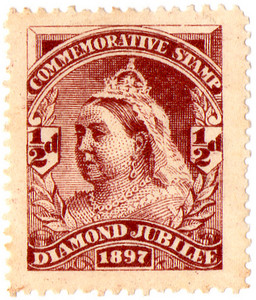
The Philatelist*
(*A man who collects stamps cares for nothing else in the world.)
” O come,” said Music, “come with me ;
To Adelina Patti list;
Melt in her magic melody ” —
“I shan’t !” quoth the Philatelist.
“Come,” said the Gourmand, “come with me.
And try the varied Gatti-list;
I prithee, try Gastronomy” —
“I won’t!” quoth the Philatelist.
” Come,” said the Eightsman, ” come with me”,
And to the merry rattle list;
“Come, join our cheery crew, and we ” —
” Please go!” quoth the Philatelist.
” Come”, said the Farmer, ” come with me”.
And to my lowing cattle list :
“They’re’ slowly winding o’er the lea ” —
” Let them !” quoth the Philatelist.
“Come,” said the Mother, “come with me,
And to my cherub’s prattle list ;
Come, take the babe upon thy knee” —
“No, thanks!” quoth the Philatelist
“Come,” said the Warrior, “come with me,
And to the roar of battle list;
Come, join our valiant company” —
“Not me!” quoth the Philatelist.
“Come,” said Society, “with me,
And to my tittle-tattle list;
“Come, try the World, the Flesh, the D— “
“Get out!” quoth the Philatelist.
Montague Horatio Mostyn Turtle Pigott
(1865–1927)
The Philatelist (Poem)
• fleursdumal.nl magazine
More in: Archive O-P, Archive O-P, Mostyn Turtle Pigott

La nature
La terre est de granit, les ruisseaux sont de marbre ;
C’est l’hiver ; nous avons bien froid. Veux-tu, bon arbre,
Être dans mon foyer la bûche de Noël ?
— Bois, je viens de la terre, et, feu, je monte au ciel.
Frappe, bon bûcheron. Père, aïeul, homme, femme,
Chauffez au feu vos mains, chauffez à Dieu votre âme.
Aimez, vivez. — Veux-tu, bon arbre, être timon
De charrue ? — Oui, je veux creuser le noir limon,
Et tirer l’épi d’or de la terre profonde.
Quand le soc a passé, la plaine devient blonde,
La paix aux doux yeux sort du sillon entr’ouvert,
Et l’aube en pleurs sourit. — Veux-tu, bel arbre vert,
Arbre du hallier sombre où le chevreuil s’échappe,
De la maison de l’homme être le pilier ? — Frappe.
Je puis porter les toits, ayant porté les nids.
Ta demeure est sacrée, homme, et je la bénis ;
Là, dans l’ombre et l’amour, pensif, tu te recueilles ;
Et le bruit des enfants ressemble au bruit des feuilles.
— Veux-tu, dis-moi, bon arbre, être mât de vaisseau ?
— Frappe, bon charpentier. Je veux bien être oiseau.
Le navire est pour moi, dans l’immense mystère,
Ce qu’est pour vous la tombe ; il m’arrache à la terre,
Et, frissonnant, m’emporte à travers l’infini.
J’irai voir ces grands cieux d’où l’hiver est banni,
Et dont plus d’un essaim me parle en son passage.
Pas plus que le tombeau n’épouvante le sage,
Le profond Océan, d’obscurité vêtu,
Ne m’épouvante point : oui, frappe. — Arbre, veux-tu
Être gibet ? — Silence, homme ! va-t’en, cognée !
J’appartiens à la vie, à la vie indignée !
Va-t’en, bourreau ! va-t’en, juge ! fuyez, démons !
Je suis l’arbre des bois, je suis l’arbre des monts ;
Je porte les fruits mûrs, j’abrite les pervenches ;
Laissez-moi ma racine et laissez-moi mes branches !
Arrière ! homme, tuez, ouvriers du trépas,
Soyez sanglants, mauvais, durs ; mais ne venez pas,
Ne venez pas, traînants des cordes et des chaînes,
Vous chercher un complice au milieu des grands chênes !
Ne faites pas servir à vos crimes, vivants,
L’arbre mystérieux à qui parlent les vents !
Vos lois portent la nuit sur leurs ailes funèbres.
Je suis fils du soleil, soyez fils des ténèbres.
Allez-vous-en ! laissez l’arbre dans ses déserts.
A vos plaisirs, aux jeux, aux festins, aux concerts,
Accouplez l’échafaud et le supplice ; faites.
Soit. Vivez et tuez. Tuez, entre deux fêtes,
Le malheureux, chargé de fautes et de maux ;
Moi, je ne mêle pas de spectre à mes rameaux !
Janvier 1843.
Victor Hugo
(1802-1885)
La nature
(Poème)
Les Contemplations
• fleursdumal.nl magazine
More in: Archive G-H, Archive G-H, Hugo, Victor, Victor Hugo
A smart and highly readable exploration of why we think and do bad things.
 Dr Julia Shaw shows us that the same dispositions that make us capable of heinous crimes may also work to our advantage. And, if evil is within all of us, should it be said to exist at all?
Dr Julia Shaw shows us that the same dispositions that make us capable of heinous crimes may also work to our advantage. And, if evil is within all of us, should it be said to exist at all?
In Making Evil, Shaw uses a compelling mix of science, popular culture and real life examples to break down timely and important issues. How similar is your brain to a psychopath’s? How many people have murder fantasies? Can A.I. be evil? Do your sexual proclivities make you a bad person? Who becomes a terrorist?
Dr Julia Shaw is a scientist in the Department of Psychology at University College London (UCL). Her academic work, teaching and role as an expert witness have focused on different ways of understanding criminal behaviour. Dr Shaw has consulted as an expert on criminal cases, delivered police-training and military workshops, and has evaluated offender diversion programs. She is also the co-founder of Spot, a start-up that helps employees report workplace harassment and discrimination, and employers take action. Her work has been featured in outlets such as CNN, the BBC, the New Yorker, WIRED, Forbes, the Guardian and Der Spiegel.
Making Evil: The Science Behind Humanity’s Dark Side
Dr Julia Shaw (Author)
Publisher: Canongate Books
Main edition (7 Feb. 2019)
Language: English
ISBN-10: 1786891301
ISBN-13: 978-1786891303
Hardcover: 320 pages
Feb 2019
Product Dimensions: 14.4 x 3 x 22 cm
# more books
Making Evil
Dr Julia Shaw
fleursdumal.nl magazine
More in: - Book News, - Book Stories, - Bookstores, Archive S-T, AUDIO, CINEMA, RADIO & TV, CRIME & PUNISHMENT, DRUGS & DISEASE & MEDICINE & LITERATURE, Natural history
Robert Lundquist was one of the rising stars of the Santa Cruz renaissance. By the early 1970s he was published in the Paris Review, anthologized in Raymond Carver’s magazine Quarry West, and listed in Rolling Stone magazine’s ‘Best 100 American Poets.’ This is Lundquist’s first major work. Discover a lost genius in these pages.
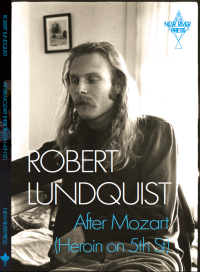 These poems were written in bursts over five decades. From 1969 to 1973, from 1980 to 1985, and from 2014 to 2018. Lundquist has an extraordinarily sensitive voice deeply engaged with the works of García Lorca, César Vallejo, Paul Celan, James Wight, Wallace Stevens, and John Ashbery. He addresses themes of love, loss, alcoholism, and emotional pain. He meditates on death, romance, and beauty with wild formal experiments and a visceral, surreal vision that is all his own.
These poems were written in bursts over five decades. From 1969 to 1973, from 1980 to 1985, and from 2014 to 2018. Lundquist has an extraordinarily sensitive voice deeply engaged with the works of García Lorca, César Vallejo, Paul Celan, James Wight, Wallace Stevens, and John Ashbery. He addresses themes of love, loss, alcoholism, and emotional pain. He meditates on death, romance, and beauty with wild formal experiments and a visceral, surreal vision that is all his own.
Central to his poetry is the changing spirit of Downtown L.A. The poet was raised and has lived his entire life there. His grandmother was a waitress in Union Station and his father an undercover policeman. Some darker chapters are inspired by a stint living next to skid row. The neighbourhoods of DTLA – the automobiles, diners, bars, porches, birds, and characters they contain – are evoked here with a noir melancholy and hallucinatory brilliance.
Until now most of this great work was available only in magazine archives, anthologies, and out-of-print chapbooks. Lundquist was previously led away from publishing by a rejection of the MFA culture that came to dominate American letters, struggles with addiction, the anxiety of influence, and a commitment to his psychoanalytic practice. A renewed interest in Lundquist’s work in recent years has resurrected his need to create, and we are all the better for it.
Robert Lundquist is a poet and practicing psychoanalyst in Los Angeles. Robert is also an avid blues harmonica player. His poems have appeared in such magazines as: The Nation, The Paris Review, Poetry Now, Kayak, and Quarry West. Robert was also one of five writers who taught poetry in the prison system in California, afterwards editing an anthology of prose and poetry by the writers in prison;, the anthology is entitled About Time II. When Robert is not with his wife, Nazare Magaz, or writing, he is seeing patients in his office above The Last Bookstore in Downtown Los Angeles. Robert knows a lot about the inner workings of Downtown Los Angeles as his Grandmother was a waitress at Union Station and his father was an under cover cop, chasing down heroin dealers when smack was coming through Flower Street. Included in his adventures in DTLA was entering Zen Center Los Angeles for two years when he was eighteen and in his adolescence taking harmonica lessons from George Smith in Watts. Robert began to write poetry at twenty and at twenty-one moved to Santa Cruz, California, to be a part of a literary renaissance in Santa Cruz where he was featured in the magazine Quarry West started by Ray Carver.
After Mozart (Heroin on 5th Street)
by Robert Lundquist (Author)
Language: English
ISBN-10: 199963103X
ISBN-13: 978-1999631031
Published: 2018
Format: Soft cover/Paperback
Publisher: New River Press Ltd
# more poetry
Robert Lundquist
fleursdumal.nl magazine
More in: - Book News, - Bookstores, Archive K-L, Art & Literature News
Thank you for reading Fleurs du Mal - magazine for art & literature